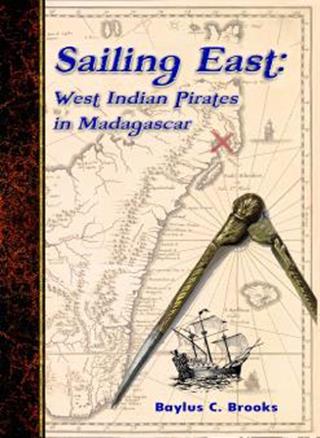


|
Professional Research & Maritime Historian, Author, & Conservator |

|
Papers – Responsibility in Business, 2009– Part 1 |



|
Webpage designed by Baylus C. Brooks—Copyright 2015-2017 Baylus C. Brooks All Rights Reserved |

|
Baylus’ Blog: |
|
Capitalism’s effects on the slave trade cannot be denied. The debate over “African contribution” in the slave trade continues, however. Recent historians have become acutely aware that the influx of slaves from rice-producing regions of West Africa coincided with the period that rice became an important export crop for Carolinians. It created a flurry of controversy from many camps. Trinidadian historian, Eric Williams proposed the idea that British capitalism and the Atlantic Slave Trade created the industrial revolution that, in turn, reduced the economic tendencies to perpetuate the slave trade. In effect, the slave trade had a negative feedback response. Although the “Williams thesis” had many opponents, his argument was based primarily on data from the Caribbean and England, an Anglo-centric perspective that included the trade to Carolina. Williams stated in Capitalism and Slavery that as early as 1663, a mere twenty years after the rise of the sugar industry (presumably, in America), Barbados was decaying fast, due to soil exhaustion. Barbados was not the first island, nor would it be the last, to suffer from the same abusive economic practices that may have destroyed the African economy. African historian, Walter Rodney contends that the loss of skilled labor, cheap imports traded for that labor, and African economic adaptation to European capitalistic endeavors, set Africa on a downward spiral from which it could not recover. These gentlemen have many critics and the argument will not be settled soon. Still, rice culture had as much a part in Carolina economics as sugar did for the rest of the New World and it had as much a part in those abusive tactics. Most likely, the development of rice culture in Carolina evolved from the business endeavors of British authorities and adapted by Carolina colonists in the first few decades of the colony’s development, after 1670. Barbadian immigrants left Barbados, a wealthy island sugar “factory” due to encouragement by far away British owners no longer able to extort their capitalistic abuses from the agriculturally depleted island. They came to America, bringing with them African slaves trained on sugar plantations on Barbados. Half the population of the island was African by 1660, according to one researcher. The area constraint problem in Barbados disappeared in the vast, seemingly endless lands of mainland America. Soon, vast numbers of slaves poured into Carolina directly from African destinations. Slaves from the African interior regions came well-prepared for their experiences in South Carolina. The rice fields of Goose Creek, South Carolina reminded them of agricultural life on the West Coast of Africa where an estimated three-fourths of the population endured indigenous servitude. Many slaves brought from these interior regions of Africa found themselves employed on coastal “training plantations” before being sold to European traders. It must be remembered, however, that slavery in Africa did not have the racial overtones and abuses of chattel slavery that developed in the American colonies. Still, the similarities for the slaves themselves arguably eased the transition. This fact was not lost on British and colonial factors. While scholars remain at each other’s literary throats over the “African contribution” debate, it seems likely that the British did, indeed, learn much of their agriculture from observations on the African coast. This fact may lend ammunition to more fervent scholarship. However, it must be remembered that the truth is often pulled from both sides with equal force. Carolinian historians have been just as guilty of adapting “legends” to fit the observed scenarios as revisionist historians may have overstated African involvement in America’s enterprises. Africans, certainly capable of that influence, simply had few chances to offer it to the New World. They were brought from rice-producing regions of Africa where their agricultural talents would prove useful in Carolina. The English had sufficient research and development skills to drive the trade. Certain techniques, like milling of rice with the mortar and pestle and winnowing the rice in broad grass baskets, accomplished the task better than European methods, to which the English made good use. This African technology was most definitely utilized by Carolina plantation owners; at least, until Carolinians found other methods that reduced their dependence on the “distasteful” African abilities. After all, advocates of forceful British capitalism would accept no substitutes. The Atlantic Slave Trade proved devastating in so many ways as a result; not the least, perhaps, in the African economy for all future generations. English and West African descendants in America are still fighting to learn the lessons from that history. Paul Monod and Henry Dethloff spoke of the eighteenth century in their unbecoming remarks on British capitalism. Not as popular as historical reflection on this recent past, African and American citizens today continually avoid any comparison of eighteenth-century capitalism to business today. However, the unscrupulous and overzealous Barbadian businessman may still exist. Africans and Americans alike have a responsibility to learn from this past. Throughout all the adversity, both have proven quite resilient and, no doubt, will accomplish this task as well.
|


